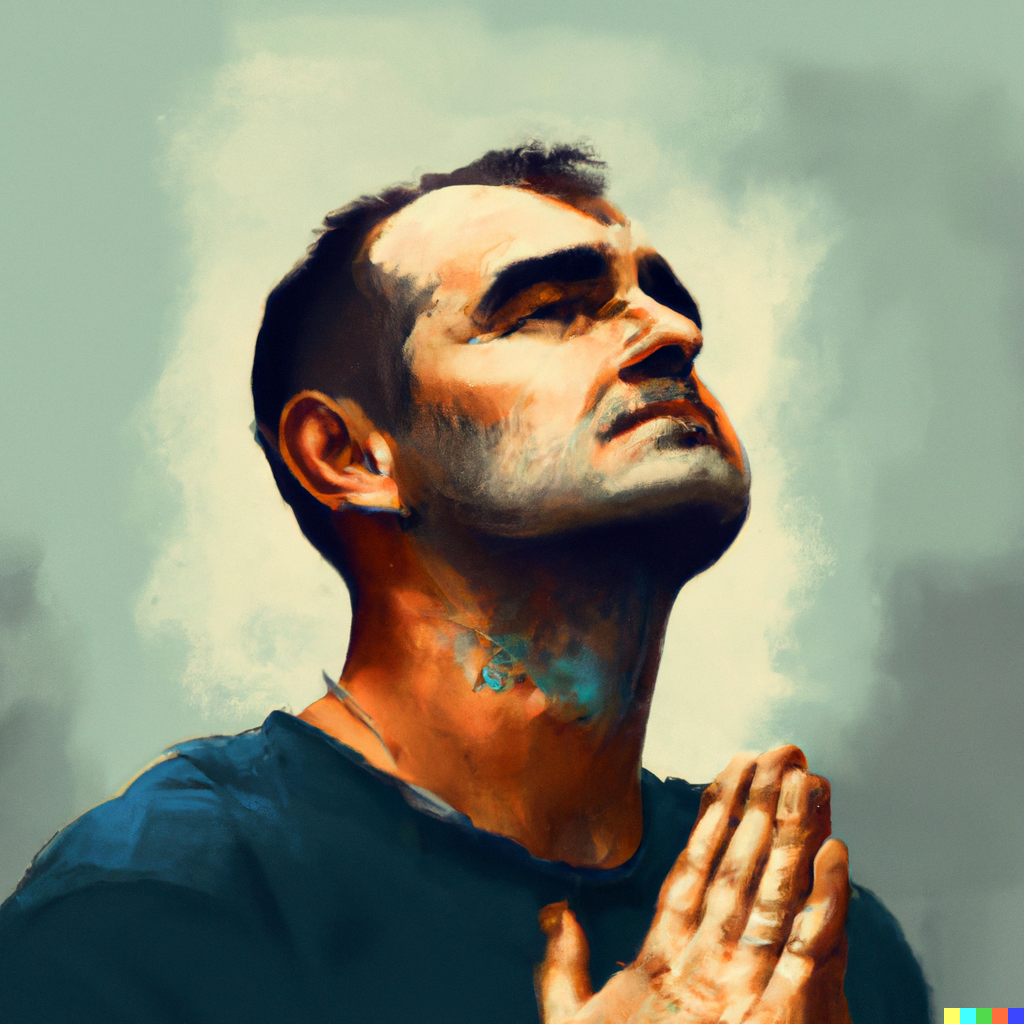When Theodore Klump – a humble, self-help aficionado unexpectedly landed the role of a director, he embarked on a quirky journey to find the secret ingredient of effective leadership. Follow Theo as he uncovers the true meaning of gratitude and becomes the world-renowned “Reverse Gratitude Guru.”
Theodore Klump, affectionately known as Theo, was a genial chap in his early thirties who harbored a peculiar fondness for self-help books and an uncanny knack for climbing the corporate ladder. One serendipitous day, he found himself launched from the familiar confines of his cubicle into the lofty realm of a director’s office. His ascent to the director’s position was as baffling as it was unanticipated.
Acutely aware of his inexperience and desperately wanting to sidestep the potential ridicule that might come with his new role, Theo sought solace in his reliable collection of self-help literature. After a cursory exploration, he stumbled upon the ideal volume: “How to Be a Good Director: A 10-Step Guide to Transforming from a Clueless Neophyte to a Respected Leader.” Theo pored over the book with the reverence of a devoted scholar studying an ancient sacred scripture, committing every word to memory and internalizing every kernel of wisdom. One particular chapter seized his attention – “The Power of Gratitude.”

From that pivotal moment, Theo morphed into an unstoppable gratitude juggernaut. He expressed appreciation for every minuscule task his team performed, be it refilling the coffee machine or updating a spreadsheet. He conveyed his thanks in person, through email, and even by way of mysterious interoffice memos that appeared to manifest out of the ether. Theo’s boundless enthusiasm for gratitude knew no bounds, and his commitment to acknowledging the efforts of his team became a defining aspect of his directorship.
Each morning, Theo would saunter into the office, radiating warmth like a benevolent sun, and exclaim, “Good morning, team! I just wanted to express my immense gratitude for every single one of you. Thank you for your unwavering commitment and hard work!”
Initially bemused by his relentless thanking, his team members soon began to endearingly (or so he assumed) dub him “The Grateful Ted.” They even crafted a “Thank You” jar, which took up residence on his desk, where they’d deposit a quarter each time Theo spoke his trademark expression of appreciation.
Theo embraced his moniker wholeheartedly, never faltering in his devotion to gratitude. He persistently studied “How to Be a Good Director” and implemented its teachings with unshakable fervor. Indeed, he was so resolute in adhering to the book’s guidance that he cultivated an eccentric routine: every day, promptly at noon, he would assemble his team in the conference room for a session he christened “Gratitude Hour.”
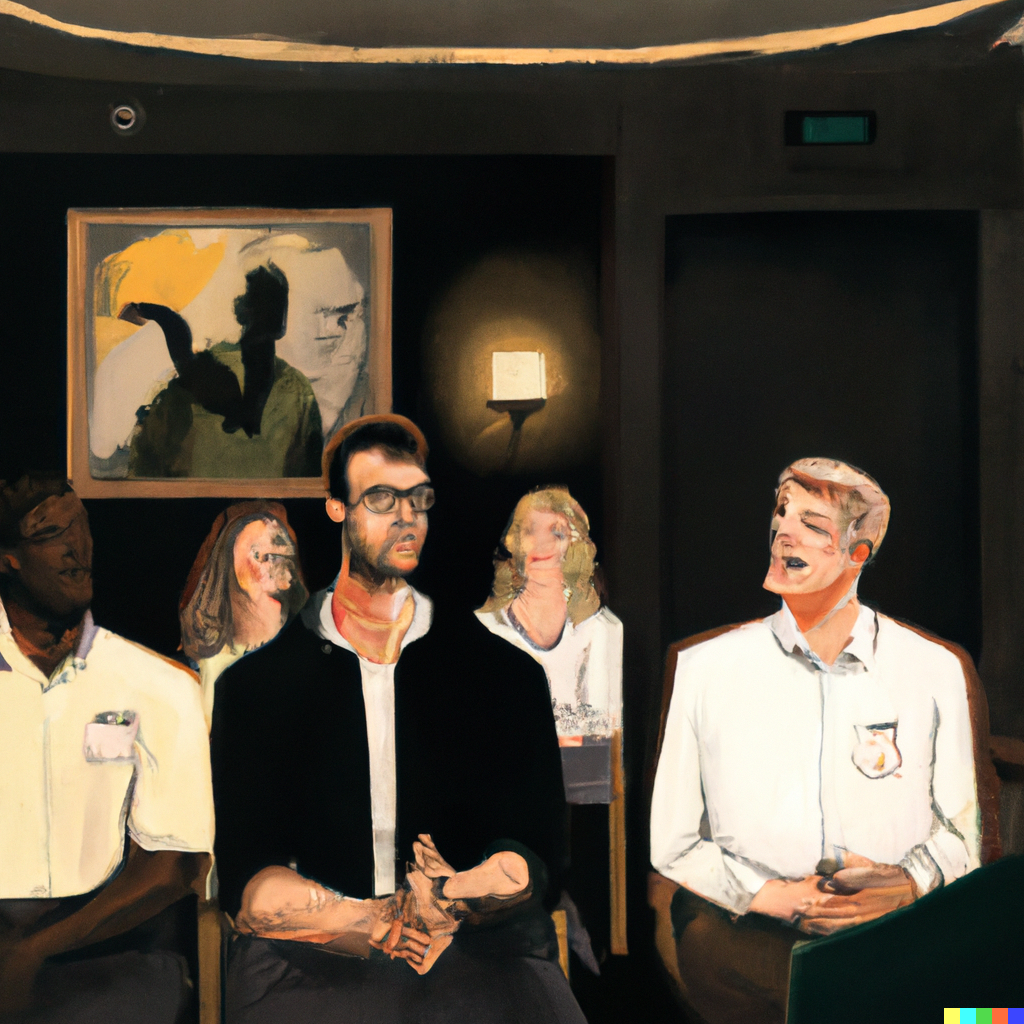
Throughout Gratitude Hour, Theo would earnestly extol the virtues of each team member’s efforts, as they exchanged uneasy glances and suppressed their yawns. The air in the room would grow thick with unease, but Theo, completely oblivious, maintained his focus on his quest to become an exemplary director. His unwavering dedication to gratitude transformed the ordinary conference room into a strange and otherworldly haven for expressions of appreciation.
On a particularly fateful Friday, Theo chanced upon a clandestine gathering in the break room. As he nudged the door ajar, he discovered his team clustered around a whiteboard, scrawling with fervent intensity. Caught off guard, they leaped to their feet and scrambled to erase any evidence of their mischief.
“Pardon my intrusion, but what exactly is transpiring here?” Theo inquired, his brow creased with inquisitiveness.
“Uh, nothing, boss!” his assistant Sally stammered, her cheeks flushed with embarrassment. “We were just, um, brainstorming some innovative strategies for the department!”
Peering at the faint traces of their scribblings, Theo discerned a list entitled “New Nicknames for Theo.” A wave of dejection washed over him as he grasped that his earnest endeavors had unwittingly become the source of mockery.
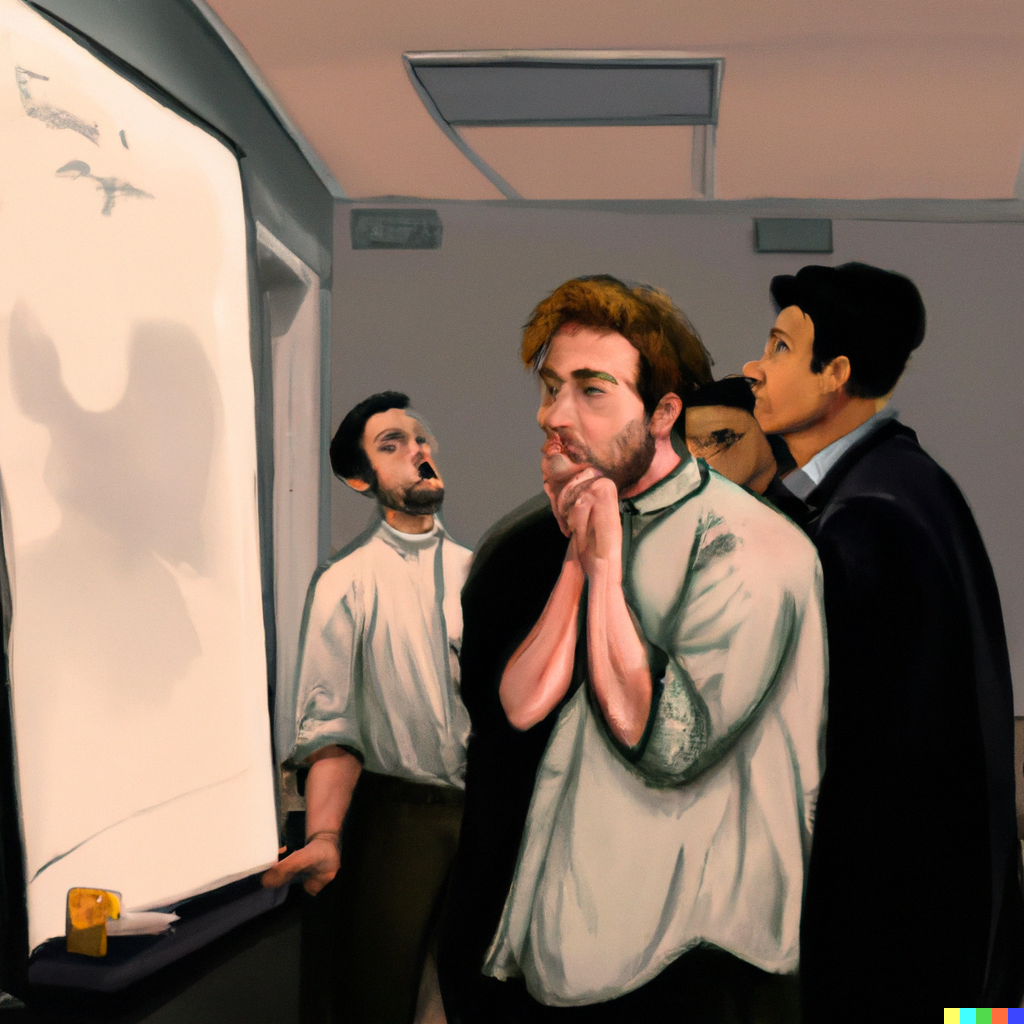
That evening, ensconced in the solitude of his office, Theo ruminated over the day’s events. Absently flipping through “How to Be a Good Director,” he stumbled upon a handwritten note nestled within the back cover:
“Dear Reader, at times, it’s wiser to simply embrace your authentic self. Wishing you the best of luck, The Author.”
With a wistful grin, Theo shut the book. The ensuing Monday, he assembled his team in the conference room once again. However, instead of initiating another Gratitude Hour, he had a more offbeat tactic in store.
“I’ve experienced an epiphany that my gratitude marathon may have verged on overkill,” Theo commenced, a self-conscious smile gracing his lips. “Thus, I’ve concocted a fresh strategy. Henceforth, during Gratitude Hour, the roles shall reverse, and the spotlight will shine on you as you seize the opportunity to thank me.”
His team exchanged perplexed glances, unsure how to process this peculiar suggestion. Nonetheless, lacking alternatives, they cautiously embarked on the uncharted waters of articulating their appreciation for Theo and his leadership.
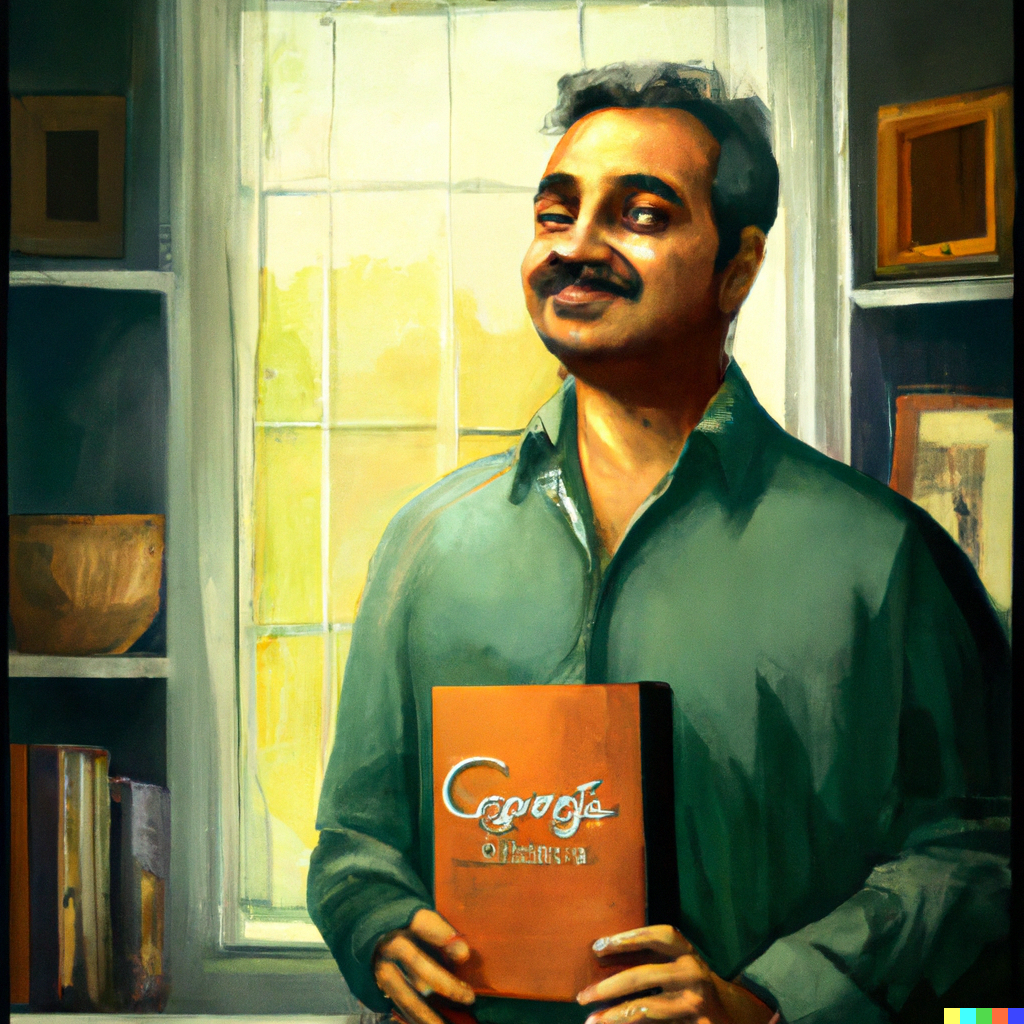
Remarkably, as the weeks marched forward, the team found themselves gradually acclimating to this eccentric custom, even to the point of considering it less bizarre than Theo’s incessant thanking. They developed a newfound fondness for their unconventional leader and began to respect his unorthodox methods. The once stifling tension that permeated Gratitude Hour now dissipated, replaced by an ambiance of laughter and camaraderie.
Theo’s quirky managerial prowess earned him the epithet “Reverse Gratitude Guru.” As time, that cunning mentor, unfolded, it bestowed upon Theo a vital lesson about leadership and gratitude. He came to understand that people don’t merely seek acknowledgment; they also desire the opportunity to express their own appreciation to others. By enabling his team to thank him, Theo inadvertently cultivated an environment where all members felt valued and respected.
The “Reverse Gratitude Guru” not only chanced upon a unique method for connecting with his team but also uncovered the true nature of gratitude: a reciprocal process that fosters a sense of solidarity and mutual appreciation.
After an entire year of practicing this unorthodox philosophy, Theo resolved to record his newfound insights and disseminate them to a wider audience. He penned his own book, entitled “The Art of Reverse Gratitude: A Maverick’s Guide to Directorship and the Power of Thanks.” To the amazement of all, his book soared to international acclaim, becoming a bestseller and transforming the formerly nicknamed “Reverse Gratitude Guru” into a celebrated authority on leadership and the transformative potential of gratitude.
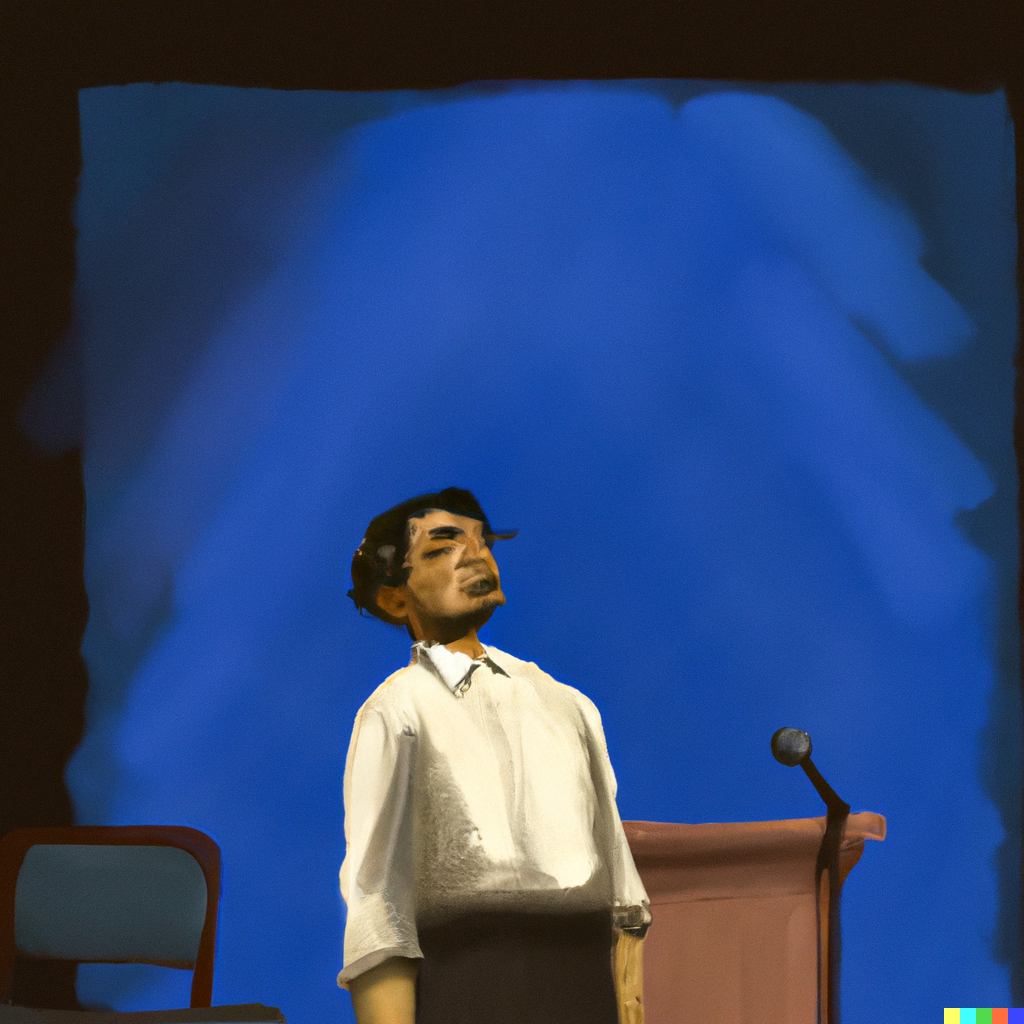
In the wake of his book’s resounding success, Theo set off on a worldwide speaking tour, sharing his singular approach with enthusiastic audiences from all corners of the globe. He captivated them with tales of his transformation from a clueless novice to a respected leader, all thanks to the unorthodox power of reverse gratitude. As he stood on stages from New York to New Delhi, Theo discovered that the audience’s excitement peaked not when he addressed them, but when they had the chance to thank him.
Consequently, his speeches morphed into endless “Thank you, Theo” sessions. People from all around the world yearned for nothing more than to express their gratitude to him for unveiling the true potency of thanks.
This unexpected turn of events not only solidified Theo’s status as the “Reverse Gratitude Guru” but also made him a millionaire.
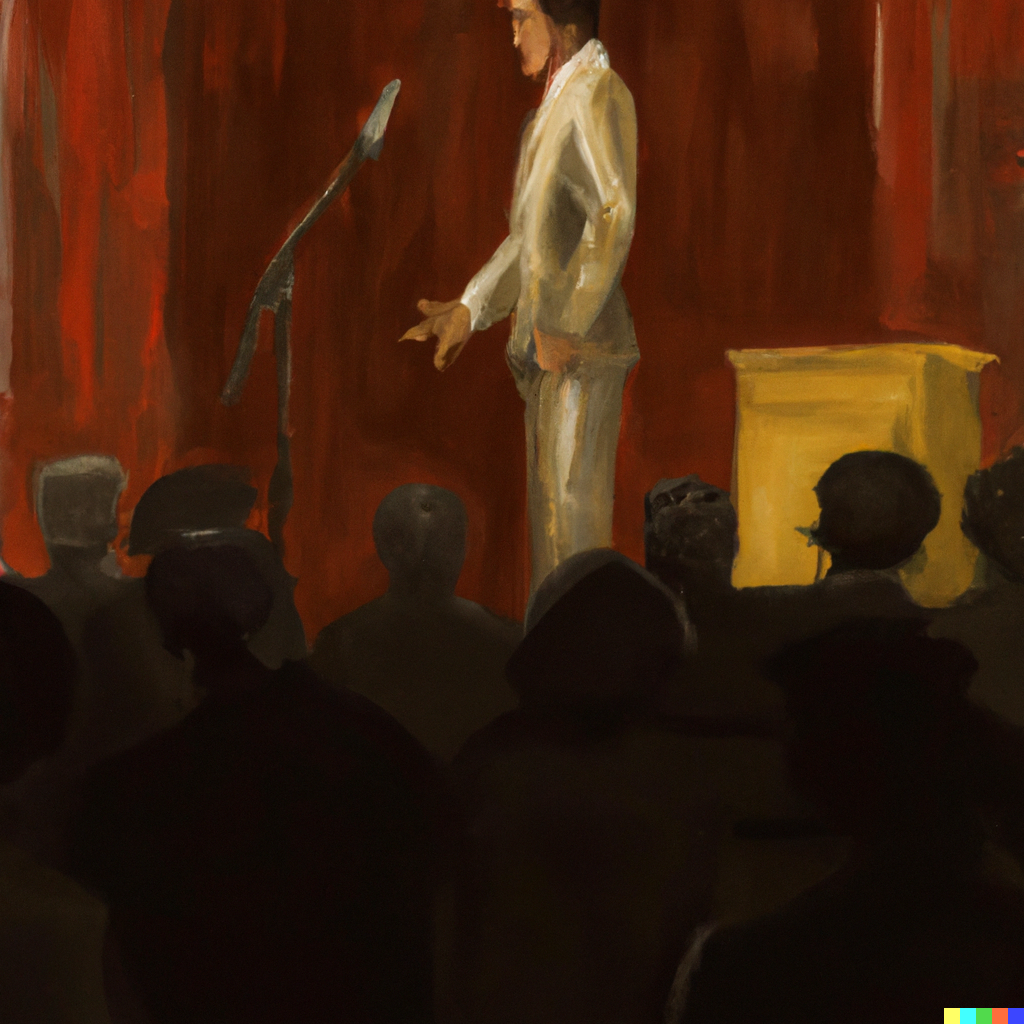
All images were generated using DALL.E 2 (Open AI)
